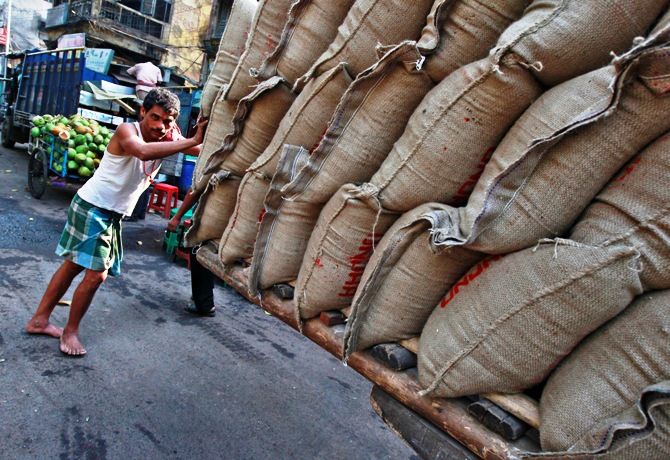 'We have too many elections at too many points of time.'
'We have too many elections at too many points of time.'
'The Opposition's refusal to co-operate is not right.'
'There are good times in business and there are bad times. Industry should accept this cyclic nature.'
Mahesh Gupta, chairman of Kent RO Systems, recently took over as the president of the PHD Chamber of Commerce and Industry.
He tells Subhayan Chakraborty the government should take note of the historic lows in international crude prices and demand, and engage in greater public spending.
Excerpts:
Why do you think the Goods and Services Tax Bill could not be passed in Parliament?
The general atmosphere in the country is to blame, which provides scope of politicking on every issue.
One reason for that is, we have too many elections at too many points of time. So the country is in a continuous election mode throughout the year.
Why are talks not progressing on the issue in spite of industry reaching out to the principal opposition?
Legally speaking, the elected government should face the onus of responsibility for not being able to pass the Bill.
However, the Opposition's refusal to co-operate is also not right.
Having said that, the complete role reversal of those in favour of GST and those opposing it is troubling.
The government is confident of passing the GST Bill in 2016. It has said a draft model law will be finalised for states by January. . .
Even if Parliament succeeds in passing the GST Bill in the Budget session, it will take another four months to properly operationalise the same.
Although we believe the states won't object to the draft law, a lot still needs to be done before it becomes a reality.
What would be your comments on the arbitration Bill, which transfers all commercial disputes pending before civil courts and high courts to the relevant commercial divisions?
International disputes are never resolved in India because our arbitration laws are very old, losing out to places like Singapore, London.
The new arbitration law will reduce litigation figures in the courts, because arbitration is a better method of resolving disputes. In most cases, it involves operational disputes and breach of contract.
Time is of essence and the lengthy legal process hampers that.
A recent report by CRISIL says India will need Rs 31 lakh crore (Rs 31 trillion) in the next five years to suitably address its infrastructure needs. Where will this huge amount come from?
India needs to maintain high foreign domestic investment figures for that to happen.
Isn't the slack in investments by domestic players also to blame?
Domestic investments can pick up only when domestic savings grow, in turn boosting domestic demands.
More inflationary pressure is the need of the hour.
The government needs to boost public sector spending, which will directly lead to consumer demand rising.
We are sleeping while international prices and crude oil prices are still at historic lows.
What would be your major recommendations to the government for the next Budget?
Consumer demand tops the list.
One way of doing that is by raising the exemption limits in income tax while buying real estate to 500,000 from the current 100,000.
Greater ease in doing business is also important.
On housing, isn't it time real estate companies stopped holding on to unsold inventories, with many empty units awaiting customers?
Builders face certain loss in clearing inventories at this point owing to low demand.
Also, the government will recover any loss it incurs from the reduced income tax earning through increased central excise and service taxes when the construction industry booms.
India's merchandise exports declined 24 per cent in November 2015. While international demand is blamed, what solid steps can bring about a turnaround?
There are good times in business and there are bad times.
Industry should accept this cyclic nature, which offers an opportunity to look within and introspect on ways to maintain growth but not compromise on quality.
The image is used for representational purpose only. Photograph: Reuters










